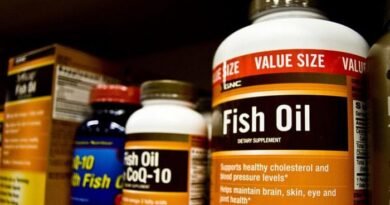Your Protein Consumption Could Be Just Enough
The loss of muscle can occur more rapidly than many realize, particularly as we age. Here’s how boosting your protein intake now can safeguard your strength and promote longevity.
Consuming adequate protein is vital for maintaining muscle. However, experts argue that the recommended dietary allowance (RDA) for protein does not adequately represent the amount necessary for optimal muscle health. This is particularly relevant for individuals aiming for healthy weight loss.
To truly thrive—not just exist—you may need significantly more.
Minimum Recommendations
“The RDA for protein is merely the lowest amount required to avoid deficiency, rather than the ideal level for overall health,” explained Angel Planells, a registered dietitian, to The Epoch Times.
Advantages of Sufficient Protein Intake
Adequate protein consumption is essential for sustaining and building muscle mass as well as endorsing physical strength and metabolic health. Over time, regular protein intake aids in improving body composition by fostering fat loss while conserving lean muscle tissue.
Skeletal muscle mass serves as a critical marker for metabolic health. Increasing evidence also suggests that having greater muscle mass and strength correlates with enhanced health, longer lifespan, and lower disease risk.
Muscle helps mitigate the risk of chronic diseases, such as Type 2 diabetes and cardiovascular conditions, according to Dr. Gabrielle Lyon, a family physician, muscle specialist, and best-selling author, as per her comments to The Epoch Times.
For those on a weight loss journey, adequate protein intake is crucial to prevent unintentional muscle loss. Ideally, weight should predominantly be lost from fat stores, as fat is a major contributor to metabolic disease. However, during weight loss, muscle mass—particularly skeletal muscle—is frequently compromised. In reality, 20 to 40 percent of total body weight loss can derive from muscle, which can adversely affect both short- and long-term health.
Protein consumption boosts hormones that foster feelings of fullness while decreasing ghrelin, the hormone responsible for hunger. This results in a more significant sense of satiation and lowered food intake. Furthermore, protein has a higher thermic effect, meaning it demands more energy for digestion and processing compared to fats and carbs—a crucial advantage for weight management.
Recommended Amounts
A general guideline for protein consumption is approximately 1 gram per pound of ideal body weight, or about 1.6 to 2.2 grams per kilogram. This amount typically suffices for most individuals, although personal needs may differ based on age, activity level, health status, and specific goals, as per Lyon.
In addition to older adults and athletes, pregnant women, those recovering from illnesses, and individuals managing chronic diseases also have heightened protein needs to meet their metabolic requirements. This emphasizes the significance of tailored dietary strategies, rather than generic recommendations, as noted by Lyon.
A long-term protein intake of 2 grams per kilogram of body weight per day is deemed safe for healthy adults. For highly active individuals, the tolerable upper limit rises to 3.5 grams per kilogram per day, as explained by Stacy Sims, an exercise physiologist and nutrition scientist with a doctorate in environmental exercise physiology and sports nutrition, speaking to The Epoch Times.
Dispelling Protein Myths
One frequent concern is that high-protein diets may damage the kidneys. However, this misconception has been disproven. Research on HPD in obese adults and data from the Nurses’ Health Study reveal no deterioration in kidney function.
Moreover, inadequate protein intake is associated with osteoporosis in older adults. Studies, including the Framingham Osteoporosis Study, indicate that higher protein intake may thwart bone loss in this demographic.
Achieving Your Protein Goals
Lyon provided the following sample meal plan with balanced protein intake for a woman with an ideal weight of 120 to 150 pounds:
- Breakfast: 2 large eggs with 3 ounces of lean ground turkey (33 grams of protein)
- Lunch: 5 ounces of grilled chicken breast, 1 cup steamed broccoli, and 1/2 cup cooked quinoa (40 grams of protein)
- Snack: 1 cup of plain Greek yogurt topped with 1 tablespoon of chia seeds and a handful of berries (22 grams of protein)
- Dinner: 6 ounces of baked salmon with 1 cup of sautéed spinach and 1 medium baked sweet potato (40 grams of protein)
Lyon highlighted that many people underestimate their protein needs and often overlook the importance of protein-dense foods in their diets. Moreover, modern eating trends tend to prioritize carbohydrates and fats over protein, partially due to convenience and food availability.





